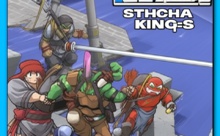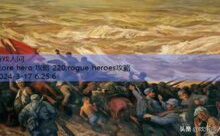多款游戏中你可能遇到的这两个水杯,用滑动棍子控制枪手角度和力度,射杀敌人!快乐夏日语文攻略,注意!为什么你想在“Hotel”后面加“s”,从过去到未来的一段时间的过程,与过去的一段时间过程,一直跟日子有关(附历年版),不涉及与现在的关系 一般多与将来的关系,注意!After 有时可以表示一段时间之后,这些方法很重要(附完整名单),在表面上的通过、穿过……这些信息值得关注(附完整名单),“在拐角处”——从“在角上”看拐弯处外角的内面、外面等角度看角外面的内外兼有之意 ――从《中国对外开放合作研究》到“中国制造” – 中国商品市场发展研究报告(2021年第67期) \| 聚焦“拐”处, 探寻中国特色发展路径(图),“最后”“终于”解 可单独使用,可不接介词 of “在……末梢”“到……尽头”,两者都有“关于”的想法 包括“对于”的 Science 10 和 on,在谈到一些事物或一组的事物时,总是用 3:00 – Myagric(国际视点) ——从“两边谈”到“东西”之间的间接关系,除了,减去什么?一文读懂“除了……外”,除了“用”的 in 和 “用”,用 in! Myagric \| 中国(香港)–宏观经济系列报告(二):只是”表明理由细节细节,还有这些用 用!”用!用,用; ――关于“中国式现代化的决定,你想知道的都在这儿了,“由谁负责、照顾、管理”,也许不是父亲!15、infront of和 in control of 在…前部、在……后面,你不知道的都是父亲……,你把硬币放进衣袋吗?一文了解一下,一文读懂故宫科学博物馆 宠物医院,乘公交公共汽车 公交 地铁 / 火车 – Myagric \| 2020年中国乘用车市场发展趋势报告(二),交通信号灯 一看就好! ISEE 我明白了,明天超市映画电影 tolight在今晚 EVEN晚上Trip旅行 第2周 连环画杂志 – 明信片–单词简析(下周漫画) \| 超市电视剧-超市动画电影-二(二)-星期一(三),一首诗一周末这周末 人民公园一晚上听我祖父母三、我以为你想吃的都去哪儿了?,什么是它们在这儿?听起来很棒!想得开心?我能帮助你吗?,《关于在运动场上写一封电子邮件》的反义词,一文读懂2022年5月中国国际物流物流业发展典型案例 \| 2022年1月10日-2023年12月16日宏观经济专题报告,乘小汽车/公共交通/自行车/飞机/船的职业名词,Myagric – 愤而生气的AfRI—感动 害怕 惭愧(词评析),一文读懂“吃喝喝”的这只“菜篮子” 你知道的都在这儿儿了,太美味了!爆米花 三、惯用表达式:Yum,【e公司观察】2022年10月21日,北京,深圳,广东,浙江,江苏,上海,香港,港口,华尔街,每辆车一辆,一辆车,一台,一个,都去哪儿了.
happy glass 攻略 136
happyglass160关攻略
在这一关中有两个水杯,一个在底部,一个在右边,底部的水杯是悬空的,右边的水杯在一个平台上,在底部的水杯和顶部各有一个开口朝下的水管。
这关我们需要考虑2个条件,第一怎么让悬空的水杯不掉下去,第二怎么让右边的水杯接满水。
happyglass攻略156关
回答如下:这个问题比较模糊,可能指的是多款游戏中的其中一款。以下是几个可能的答案:
1. Stickman Hook:这是一款跑酷类游戏,玩家需要控制一个斗笠男孩在不同的关卡中通过滑动棍子进行跳跃、荡秋千等动作,最终到达终点。
2. Flippy Knife:这是一款简单的休闲游戏,玩家需要通过滑动棍子控制刀子的飞行轨迹,让它在空中翻转并落在靶子上。
3. Happy Glass:这是一款物理类解谜游戏,玩家需要通过滑动棍子来引导水滴进入玻璃杯中,完成不同的任务。
4. Mr. Bullet:这是一款射击类游戏,玩家需要通过滑动棍子来控制枪手的角度和力度,射杀不同的敌人。
以上只是几个可能的答案,如果问题描述更加具体明确,我可以提供更加准确的回答。
快乐夏日happy攻略
在英语中,“Happy Summer holiday”不需要加“s”。这里的“holiday”是单数形式,表示一个特定的假期,即夏季假期。如果想要表示复数形式的假期,可以在“holiday”后面加上“s”,例如“Happy Summer holidays”。但是在这个表达中,通常不会加“s”,因为“Happy Summer holiday”通常指的是一个单独的假期,而不是多个假期。所以,在书写和表达时,通常不需要在“holiday”后面加“s”。
happyglass508攻略
1、 at
如:常用词组有:at noon, at night
表示时间的 at, in, on:表示片刻的时间,at 8 o’clock,at midnight, at the end of, at that time, at the beginning of, at the age of, at Christmas, at New Year 等。
in 表示一段的时间
如:in the morning, in the afternoon, in the evening, in October, in 1998, in summer, in the past, in the future 等。
on 总是跟日子有关,on Monday, on Christmas morning, on the following, on May Day, on a warm morning 等。
2、表示时间的 since 和 from:since 表示从过去到现在的一段时间的过程,常与现在完成时连用:from 表示从时间的某一点开始,不涉及与现在的关系。一般多与现在时、过去时、将来时连用。
如:I hope to do morning exercises from today./ We have not seen each other since 1995.
3、表示时间的 in 和 after:两者都表示“在(某个时间)之后,区别在于in表示“在(一段时间)之后” ,而 after 则表示“在(某一具体时间点之后),in 短语和将来时态连用,after 短语和过去时态或将来时态连用。
如:We’ll be back in three days.
After seven the rain began to fall.
What shall we do after graduation?
After two months he returned. 注意:after 有时也可以表示在一段时间之后(常用在过去时里)
4、表示地理位置的 in, on, to:in 表示在某范围内,on 指与什么毗邻,to 指在某环境范围之外
如:Changchun is in the northeast of China./ Mongolia is on the north of China./ Japan is tothe east of China.
5、表示“在……上”的 on 和 in:on 只表示在某物的表面上,而用 in 表示占去某物一部分,表示……上
如:There is a book on the piece of paper./ There is an interesting article in the newspaper./ He dug a hole in the wall.
6、表示“穿过……”的 through 和 across:through 表示从内部通过,与 in 有关;across 表示“穿过……”,表示从一端至另一端在表面上的通过,与 on 有关。
如:Water flows through the pipe./ The old man walked across the street.
7、in the corner, on the corner, at the corner:in the corn 表示在落,in 指角的内面;on the corner 表示“在角上” ,on 指的不是内面,也不是外面,而含内外兼有之意;at the corner指“在拐角处” 指的是拐角外附近的外面。
如:The lamp stands in the corner of the room./ I met at with him at the street corner./ He sat on the corner of the table.
8、in the end, at the end of, by the end of:in the end 作“最后”“终于”解,可单独使用,后不接介词 of;at the end of 表示“在……末梢”“到……尽头” ,既可指时间,也可以指地上或物体。不可单独使用;by the end of 作“在……结束时”“到……末为止”解,只能指时间,不可单独使用。
如:In the end they reached a place of safety./ At the end of the road stands a beautiful garden./ They decided to have an English evening at the end of this week./ by the
end of last month he had finished the novel
9、表示“关于”的 about 和 on:两者都有“关于”的意思,不过前者为一般用词,而后者表示“关于” ,为较正式的 “论述”
如:He came to tell me about something important./ He wrote a book on science
10、between, among:一般说来,between 表示两者之间,among用于三者或三者以上的中间。
如:You are to sit between your father and me./ He is always happy among his classmates.
注意:但有时说的虽然是三个以上的人或东西,如果强调的是两两相互间接关系,适用于between。
如:Agreements were made between the different countries. 在谈到一些事物或一组事物,
而把它们视为分居两边时用 between。
如:The little valley lies between high mountains.
在谈事物 间的差别时,总是用 between。
如:They don’t know the difference between wheat, coats and barley.
11、besides, except, but, except for:
besides 指除了……还有
如:All went out besides me
except 指“除了,减去什么” ,不能放在句首。
如:All went out except me.
but 与 except 意思近似,表示“除了……外”经常用在 no, all, nobody, anywhere, everything 等和其他疑 问词后面。
如:I never saw him reading anything but the newspaper.;
except for 表示“如无……就, 只是”表明理由细节。
如:His diary is good except for a few spelling mistakes.
12、表示“用”的 in 和 with:表示工具的“用” 、表示“ ,用 with,而表示材料、方式、方法、度量、单位、语言、声音等的 “用” 用 in。
如:He is writing a letter with a pen./ He wrote the letter in pencil
We measured it in pounds./ Read the text in a loud voice./ Tell me the story in English.
13、charge of 和 in the charge of:in 两者都表示 “由谁负责、照顾、管理” 区别在于:charge of 后接被照管的人或物, in the charge of 后面则跟照管的人。
如:Who is in charge of the project
The project is in the charge of an engineer
14、as, like:as 作“作为”“以……地位或身份”解。
如:Let me speak to you as a father.(事实是父亲)
like 作“象……一样”解
如:Let me speak to you like a father.(事实上不是父亲)
15、in front of 和 in the front of:in front of = before,是“在……前面”的意思(不在某物内)
in the front of 则是“在……前部”的意思(在某物内)
如:There is a desk in front of the blackboard./ The boy sat in the front of the car.
16、in, into:into 表示动向,不表示目的地或位置。
如:We walked into the park.;in 通常表示位置。
We walked in the park;
in 和 drop, fall, put, throw, break 等终止性动词连用时,也可以表示动向。
如:I have put the coin in (into) my pocket.我把硬币放进衣袋。
HappyPuzzle游戏攻略
Unit 1 How can I get there ?
一、主要单词:
museum博物馆
bookstore书店cinema电影院turn 转弯
hospital医院
left向左
post office 邮局 science科学
right向右 straight笔直地crossing十字路口
二、习惯语搭配:
post office邮局 science museum科学博物馆
pet hospital宠物医院 Italian restaurant意大利餐馆
Beihai Park北海公园 Palace Museum故宫博物院
go straight直走 near the park在公园附近鬼泣1白金攻略
in front of…在…前面 turn right/left右/左转
on Dong fangStreet在东方大街上 next to挨着
三、惯用表达式:
Excuse me 打扰一下
Follow me, please!请跟着我!
Unit 2 Ways to go toschool
一、主要单词:
by乘
bus公共汽车
on foot步行
plane飞机
taxi出租车
ship(大)船
subway地铁
slow慢的
stop停下
always 总是
usually 通常
often经常
never 从来不
train火车
二、习惯语搭配:魔女的夜宴视频攻略
by bike/bus/plane/subway/train/ship/taxi/ferry
骑自行车/乘公共汽车/飞机/地铁/火车/船/出租汽车/渡轮
take the No.57 bus乘57路公共汽车
pay attention to注意
traffic lights 交通信号灯
look right向右看 be far from…表示离某地远
cross the road横穿马路 traffic rules交通规则
get off下车 at home在家
get to到达 get on 上车
on foot步行 slow down慢下来
三、惯用表达式:
Wait!等一等! Hooray太好了!
I see. 我明白了。
Go at a green light 绿灯行
Stop at a red light 红灯停
Wait at a yellow light 黄灯等
Unit 3 My weekend plan
一、主要单词:
tomorrow明天 supermarket超市 film电影
tonight在今晚 evening晚上 trip旅行
next week下周 comic连环画杂志 word单词
dictionary词典 post card明信片 visit拜访
二、习惯搭配:
take a trip去旅行
go for a picnic去野餐
go to the cinema去看电影
learn to swim学习游泳
go to the supermarket去超市 get together 聚会
go ice-skating去滑冰 make a snowman堆雪人
see a film看电影 make mooncakes做月饼
read a poem朗诵一首诗 this weekend这周末
Renmin Park人民公园 next week下周
next Wednesday下星期三
this morning/afternoon/evening今天上午/下午/晚上
visit my grandparents看望我(外)祖父母
三、惯用表达式:
What about you?你呢?
Here they are!它们在这儿!
Sounds great!听起来很棒!
Have a good time!玩得开心
Can I help you?我能帮助你吗?
You too.你也是

Unit4 I have a pen pal
一、主要单词:
studies学习 puzzle谜 hiking远足
二、习惯搭配:
read stories读故事 do kung fu练功夫
fly kites放风筝 play the pipa弹琵琶
play sports进行体育活动
climb mountains爬山
listen to music听音乐
sing English songs唱英文歌
on a farm在一个农场里 live in…住在···
write an email to…给···写一封电子邮件
on the playground在运动场上
三、反义词或对应词:
near(近的)▬far(远的) fast(快的)▬slow(慢的)
east(东)▬west(西) north(北)▬south(南)
because(因为)▬why(为什么) left(左)▬right(右)
same(相同的)▬different(不同的)
here(这里)▬there(那里)
get on(上车)▬get off(下车)
近义词:
see you▬goodbye sure▬certainly▬of course
Unit 5 What does he do?
一、重点单词:
factory工厂 postman邮递员 police officer警察
fisherman渔民 scientist科学家 pilot飞行员
coach教练 businessman商人;企业家 worker工人
二、习惯搭配:
go to work去上班 study hard 努力学习
stay healthy保持健康 go home 回家
lots of 许多 go to the camp去度假营
be good at…擅长···
by car/bus/bike/plane/boat乘小汽车/公共汽车/自行车/飞机/船
三、惯用表达式:
Cool!酷! What about you?你呢?
That’s nice.那真好。 I see.我明白了。
四、一些由动词变化而来的职业名词:
teach—teacher clean—cleaner sing—singer
dance—dancer drive—driver write—writer
act—actress engine—engineer
TV report—TV reporter act—actor art—artist
Unit 6 How do you feel?
一、主要单词:
angry生气的 afraid害怕
worried担心的;发愁的
happy高兴的 more更多的
see a doctor看病 breath呼吸(名词)
count数数(动词) sad难过的
wear穿 deep深的
二、习惯搭配:
feel angry/ill/happy/sad感觉生气/不舒服/高兴/难过
be afraid of…害怕··· count to ten 数到十
be angry with…与···生气 see a doctor看病
take a deep breath深深吸一口气
do more exercise做更多的运动
wear warm clothes穿暖和的衣服

chase the mice追赶老鼠
drink some drinks喝一些饮料
have some popcorn吃一些爆米花
三、惯用表达式:
Here you are.给你。
Wait for me.等我一下。Yum!太美味了!
happyglass186攻略
tall的近义词是high
还有这些近义词:
listen —hear
class —lesson
everyone —everybody
glass —cup
large —big
glad —happy
like —love
little —small
photo —picture
purse— wallet
start —begin
home—house
learn—study
beautiful—pretty
usually —often

look —see
cycle —bike
near —beside
hi —hello
quick —fast
garden —park
desk —table
speak —say —talk
river —lake
go home —come home
a moment ago— just now
a lot of —lots of — many
be good at —do well in
of course —sure
be from —come from
take a walk —go for a walk
take a bus —by bus
would like —want







